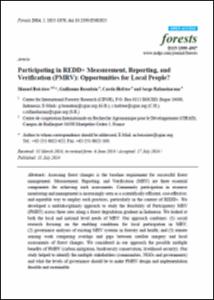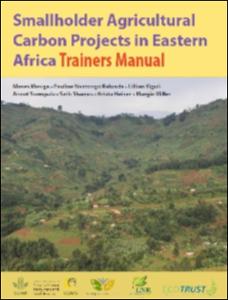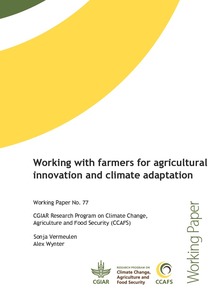Participating in REDD+ Measurement, Reporting, and Verification (PMRV): Opportunities for Local People?
Assessing forest changes is the baseline requirement for successful forest management. Measurement, Reporting, and Verification (MRV) are three essential components for achieving such assessments. Community participation in resource monitoring and management is increasingly seen as a scientifically efficient, cost-effective, and equitable way to employ such practices, particularly in the context of REDD+. We developed a multidisciplinary approach to study the feasibility of Participatory MRV (PMRV) across three sites along a forest degradation gradient in Indonesia.








